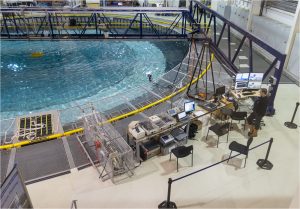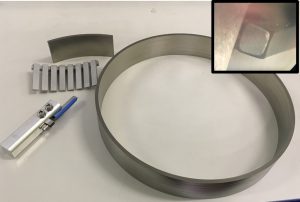New Year’s resolutions
Successful research requires the right combination of facilities, insight, people and money all being available in the right place at the right time. I’ve managed this a few times in my career and I’ve been lucky over recent years….but the whole process is cyclical and I am entering a stage where I need to secure more funding in the coming months to continue. I was unlucky with funding late 2018, so in 2019 I am going to focus on new opportunities – I have 4 potential projects in the pipeline…fingers crossed …I am also starting to recruit PhD students for September 2019 entry.
Teaching
As semester two starts, so too does my annual teaching load. In January I taught my smallest ever cohort of MSc students – learning all their names by the end of the week, which resulted in a really nice teaching atmosphere. I have changed the focus of my undergraduate renewable energy course coursework to designing a 5 MW solar farm in the South of England. Interested to see how they get on.

Newcastle University is one of just a handful of Russell Group universities to be awarded the TEF gold award for teaching excellence. The next submission, which is due in 2020, is going to be subject specific. I have agreed to be part of the Engineering team responsible for helping deliver our TEF submission – a so called TEF coordinator for Electrical, Electronic and Mechanical Engineering..
Research

In the last week of January we took one of our linear machines up to the flowave wave tank at Edinburgh University. At small scale, we were able to demonstrate direct drive electrical power take off of a wave energy device, including bi directional power flow to control the oscillation. Exciting stuff! This marks the beginning of the end of our EPSRC funded EDRIVE project.

The latest machine we have started to build is a radial flux, external rotor Halbach array machine, and Iago, a hard working PhD student, is in the exciting phase of planning the build of this machine. Meanwhile January also saw the submission of Ahmed’s thesis – after months of analysing the data from one of our linear machines.